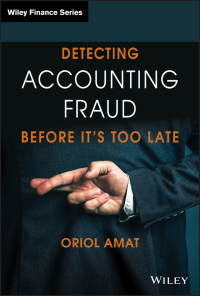Question
Mini Case study Bonds Valuation Singapore Mass Rapid Transit (MRT), to fund some of its expansion plans, recently issued 30-year bonds with low coupon rates.
Mini Case study Bonds Valuation
Singapore Mass Rapid Transit (MRT), to fund some of its expansion plans, recently issued 30-year bonds with low coupon rates. Investors were willing to purchase the bonds despite the low coupon rates because MRTs debt has consistently been rated AA or higher during the past decade, which means that bond rating agencies consider the companys default risk to be extremely low. Now, MRT is considering raising additional funds by issuing new debt. The company plans to use the new funds to finance additional expansion. Unlike with its previous expansion efforts, MRT now plans to grow the company by purchasing young companies that have recently gone public and that are not in the transport industry.
Wally, who works closely with MRTs investment banker, has been assigned the task of determining how to best raise the desired funds. After speaking with the investment banker, some friends who work at other companies and peers in MRTs international subsidiaries, Wally is seriously considering recommending to management that MRT should issue a new security that has the characteristics of both debt and equity. The security, which was recently introduced in Singapore financial markets, is classified as debt because fixed interest payments that are tax deductible are paid every year. Unlike conventional bonds, these hybrid bonds, called bondares, have maturities of 50 to 60 years. In addition, the company is not considered to be in default if it misses interest payments when the companys credit rating drops below B+. Most experts consider bondares to be quite complex financial instruments.
Through his research, Wally discovered that bondares have been used for quite some time outside of Singapore. Compared with conventional debt, companies that have used bondares have increased their earnings per share (EPS) significantly. A major reason EPS increases is because the cost of a bondare generally is much lower than equity, but the instrument is comparable to equity financing with respect to maturity and default risk. For example, Wally discovered that MRT could issue bondares with an after-tax cost equal to 5 per cent, which is only slightly higher than the after-tax cost of issuing conventional debt and is approximately one-third the cost of issuing new equity. Although bondares are considered risky, the actual degree of risk is unknown. The friends and co-workers with whom Wally consulted seem to think there is a slight chance that investors both shareholders and bondholders would earn returns significantly lower than would be earned with conventional debt when the company performs extremely poorly. The opposite should occur when the company performs very well.
The major drawback to issuing bondares is that they will significantly increase the financial leverage of MRT, and thus, the value of the recently issued bonds will decrease substantially. On the other hand, Wally thinks that issuing bondares can be a win-win proposition for MRT and its ordinary shareholders. If the companys expansion plans are unsuccessful, the market values of both its debt and its equity would decrease to the point that it would be attractive for the company to repurchase these financing instruments in the capital markets. If this is true, then issuing bondares would benefit shareholders at the expense of bondholders. MRTs executives are major shareholders because their bonuses and incentives are paid in the companys ordinary equity.
REQUIRED
- What is the ethical dilemma?
- Is it appropriate for MRT to use bondares to raise funds that are needed for expansion?
- What would you do if you were Wally?
Step by Step Solution
There are 3 Steps involved in it
Step: 1

Get Instant Access to Expert-Tailored Solutions
See step-by-step solutions with expert insights and AI powered tools for academic success
Step: 2

Step: 3

Ace Your Homework with AI
Get the answers you need in no time with our AI-driven, step-by-step assistance
Get Started


